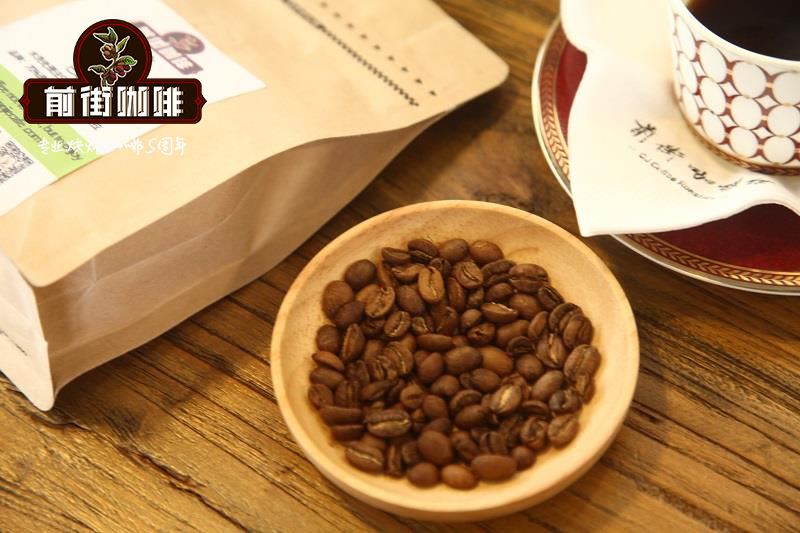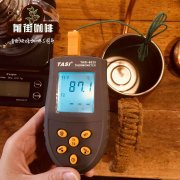Ethiopian Rose Summer Village Manor Brand-CHAKA_ Rose Summer Village Garden what's the taste of Rose Summer?

Professional coffee knowledge exchange more coffee bean information please follow the coffee workshop (Wechat official account cafe_style)
New production season Ethiopian Coffee Rosa Village Manor CHAKA
Rose Xia Village Manor-Sun
Origin: Ethiopia / producing area: Banchimaji Bench Maji / altitude: 1911 Meli 2001 m / Coffee species: Gori Gesha / Post-processing: Nature Solar
Chaka is a limited project brand owned by Gesha Village. In 2011, Gesha Villiage started to adjust the varieties with better flavor, reducing the original six varieties to three, while taking care of the plants that continue to be cultivated in the nursery, carefully transplanting and planting, and following the best agronomic learning habits. In 2011, Gesha Villiage started to adjust the varieties with better flavor, reducing the original six varieties to three, namely Gori Gesha Forest. Gesha 1931 and Illubabor Forest. Chaka is a primitive variety growing in Gori Gesha forest. This quality-based, quality-focused approach allows Gesha Village trees to achieve their inherent quality, maximize their potential, and produce coffee with amazing flavor.
Cupping Profile: sweet honey, jasmine, lime, melon, clean fermented (wine), tropical fruit, sweet peach, ripe red fruit, pineapple aroma.
Guoxia Village Manor Ethiopia Gesha Village Coffee Estate
Before meeting Willem Boot, Adam Overton had only a vague dream of buying a farm in Ethiopia to grow the world's most delicious coffee Geisha.
Why Ethiopian coffee? Because Ethiopia is said to be the native place of rose summer, the seeds of rose summer were brought out from the depths of the local primeval forest and moved to Panama last century. It was not until early 2000 that it became an amazing coffee. Another thing is that his wife Rachel Samuel is Ethiopian.
Adam has no experience growing coffee. He works as a documentary filmmaker and Rachel is a professional photographer. They were commissioned to shoot coffee documentaries in Ethiopia in 2007. From then on, I fell in love with coffee and wholeheartedly wanted to buy a coffee garden.
They met Willem Boot in 2009, three years after Willem Boot bought La Mula, a Panamanian estate, to grow rose summer. In order to learn from the experience, the couple flew from the Ethiopian capital to Panama and went to Donkey Manor to ask Willem Boot for help. At that time, no one knew that the small estate of La Mula would shine in the "Best Panama" competition in five years' time.
Learning from Willem Boot, the dream of the Adam couple is a major turning point, and they are more determined to build their own Rose Summer Manor. Since they live in Addis Ababa, the capital of Ethiopia, at first they want to find a closer place, it is easier to find labor, the transportation is also convenient. But to meet the conditions for growing rose summer, taking into account altitude, microclimate, all other conditions, unwittingly farther and farther away, and finally came to the most remote southwest of Ethiopia, bordering the border with Sudan.
The area is Bench-Maji, a two-day drive from Adis Addis, and there are several nearby villages called Rose Summer, which is also the legendary most likely place of origin. Bench-Maji was independent and rarely entered by outsiders, and the situation did not improve slightly until the road was opened up a few years ago. The local Meanit aborigines have their own language. To all outsiders, they call it China!
The Adam couple, accompanied by the locals, climbed to the mountains. As soon as they saw the place, they immediately fell in love with the land-1900 to 2100 meters above sea level, abundant rainfall, suitable temperature patterns, rich undeveloped primeval forest soil, exposure to the long-standing coffee growth ecology, with ancient coffee trees. After three years of searching, I finally have a foothold in this dream land. They chose a simple name: "Rose Summer Village Coffee Manor" (Gesha Village Coffee Estate).
When the farm broke ground in October 2011, Willem Boot, their consultant, flew to the manor and saw more like a camping prairie than a thriving farm. In order to guard against incoming lions, watchtowers were built on the farm to sound the alarm early. To explore the forest, you need to be equipped with AK 47 rifles, guard against ferocious wild animals, and be accompanied by aborigines with spears.
But at about the same time, there was a breakthrough in finding suitable varieties for planting. Willem Boot and Adam found in a primeval forest not far from the manor that the shape of the wild rose summer was very similar to that of Panamanian rose. regardless of the growth shape of cherries and branches, the growth of shade trees was deeply concealed, thousands of coffee shrubs were in full bloom, and the air was filled with unbelievably strong jasmine fragrance. Willem Boot recalls that he was "in heaven" at that time!
The forest they found is called Gori Gesha Wild Coffee Forest, just 20 kilometers from the manor, and Adam believes it is the same source collected by the famous Panamanian summer of 1930. Willem Boot also believes that these trees are very similar to the rose beans he planted in La Mula, which have green and brass tips. In February 2012, Willem Boot returned to the manor, and the Rosa variety of the manor was finally finalized.
END
Important Notice :
前街咖啡 FrontStreet Coffee has moved to new addredd:
FrontStreet Coffee Address: 315,Donghua East Road,GuangZhou
Tel:020 38364473
- Prev

How do you roast Ethiopian native summer SOE coffee beans? Can Rosa coffee beans be used as SOE?
Professional coffee knowledge exchange more coffee bean information please follow the coffee workshop (Wechat official account cafe_style) Ethiopian coffee native rose summer: Sidamo Gerana processing plant Mr. Israel Degefa 2014 began to study the original rose summer special espresso coffee roast curve from concentrated-American-milk coffee, the flower fragrance is not gone, the fruit flavor is constantly different from the Panamanian rose summer flavor
- Next

Recommendations for baking Sidamo coffee beans in the Yegashefiguji region of Ethiopia
Professional coffee knowledge exchange more coffee bean information please follow Coffee Workshop (Wechat official account cafe_style) Euromia Ethiopian Coffee Sun Sidamo producing area: southern Ethiopia Sidamo production level: Grade1 altitude: 1850-2000 m processing: sun taste:
Related
- Detailed explanation of Jadeite planting Land in Panamanian Jadeite Manor introduction to the grading system of Jadeite competitive bidding, Red bid, Green bid and Rose Summer
- Story of Coffee planting in Brenka region of Costa Rica Stonehenge Manor anaerobic heavy honey treatment of flavor mouth
- What's on the barrel of Blue Mountain Coffee beans?
- Can American coffee also pull flowers? How to use hot American style to pull out a good-looking pattern?
- Can you make a cold extract with coffee beans? What is the right proportion for cold-extracted coffee formula?
- Indonesian PWN Gold Mandrine Coffee Origin Features Flavor How to Chong? Mandolin coffee is American.
- A brief introduction to the flavor characteristics of Brazilian yellow bourbon coffee beans
- What is the effect of different water quality on the flavor of cold-extracted coffee? What kind of water is best for brewing coffee?
- Why do you think of Rose Summer whenever you mention Panamanian coffee?
- Introduction to the characteristics of authentic blue mountain coffee bean producing areas? What is the CIB Coffee Authority in Jamaica?

